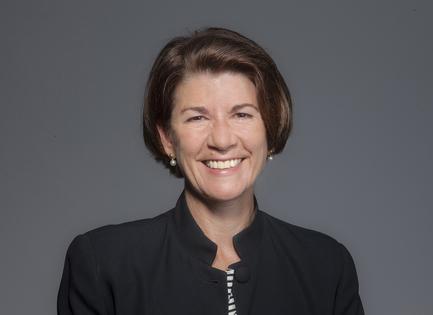Ask Amy: Grandparents excluded from Sunday dinners
Dear Amy: My daughter, who moved to the East Coast for college 15 years ago, recently had a baby.
My husband and I, recently retired, came out from the West Coast for the baby's birth and were convinced to move.
We upended everything, moved 12 minutes away from our daughter and now watch our grandson four days a week, which is great.
My daughter's in-laws live about an hour away and now that the baby is older they have resumed their routine of Sunday dinners, with my daughter, son-in-law and grandson. These dinners, which used to be at the in-laws’ house, are now held at my daughter's house.
We are rarely invited to join, even on Mother's Day.
We were invited on Christmas and Easter, but we bought all the food and did all the cooking.
How can I handle that they are purposely (and hurtfully, on Mother's Day) excluding us?
– Feeling Shunned
Dear Shunned: You see your grandchild four times a week. Granted, you are providing childcare and not dropping in for special occasion visits, but these in-laws likely believe that because you have so much access to your grandchild (also their grandchild), they should have their own special and exclusive access to the baby. Hence, the regular Sunday dinners.
There is a known phenomenon in Western cultures called “matrilineal advantage.” This is where a child’s maternal grandparents (and other maternal relatives) tend to spend more time with and be closer to grandchildren than the paternal relatives. A major factor is the tendency of mothers (and grandmothers) to be the “kinkeepers” of their families. They make the arrangements, remember the birthdays, host the occasion dinners (in your case, also cooking the dinners), and – yes – provide childcare. They are the linchpins of the family network.
Paternal grandparents are extremely important, and I think you should generously grant that these grandparents should also take regular opportunities to establish and maintain their own rituals with their grandchild.
You’ve upended your life and turned it over to your daughter and her family.
I’m not sure why you are signing up to bring and cook all the food for Christmas and Easter, but if you are leaping in to offer more than you are willing to happily give (in terms of childcare and other kinkeeping tasks), then you should cut back.
I agree that you should be included on Mother’s and Father’s Day, and because this has hurt your feelings, you should say so.
I hope that you and your husband are also finding your own friends, hobbies, and pursuits in your new home, in order to be less dependent on fulfilling yourselves by fulfilling your daughter’s needs.
Dear Amy: I have been contributing $20,000 a year to my 25-year-old grandson's university education.
Should I be able to know his grades and to see his university transcript?
He says it's none of my business and he has never thanked me.
– Perplexed!
Dear Perplexed!: If you and your grandson have an agreement as part of this loan that you could review his grades, then he should honor that agreement.
Otherwise, no – other than proof that he is matriculated and has passed his courses, I don’t think that he should be obligated to share his grades with you.
Thanking you for this money is mandatory.
Twenty-five is a little old to be pursuing an undergraduate degree. Unless this loan is for post-graduate education, perhaps your grandson has faced some challenges and delays on the pathway to a degree. This makes your loan even more valuable.
Before pulling the plug, I hope you’ll communicate honestly – but not angrily – with him. Part of his education might include a gentle lesson on how to receive a gift with gratitude.
Dear Amy: “Nothing Sooner” is a scheduler in a medical office who wrote to you with frustration regarding how patients always ask, “nothing sooner?” when given an appointment.
I am a surgeon and have also been a patient.
What you and this scheduler are missing is the reason behind the question. The patient is worried and anxious. Saying "first available " sends a message that the scheduler doesn't really care when they are seen, that this is just the easiest appointment for a rather indifferent scheduler to make – not the most appropriate for the patient.
And that tone came through in the letter.
Compassionate schedulers recognize what their patients are going through and are patient and accommodating.
– KM
Dear KM: Thank you for seeing this from the patient’s perspective.
========
(You can email Amy Dickinson at askamy@amydickinson.com or send a letter to Ask Amy, P.O. Box 194, Freeville, NY 13068. You can also follow her on Twitter @askingamy or Facebook.)
©2023 Amy Dickinson. Distributed by Tribune Content Agency, LLC.


















Comments